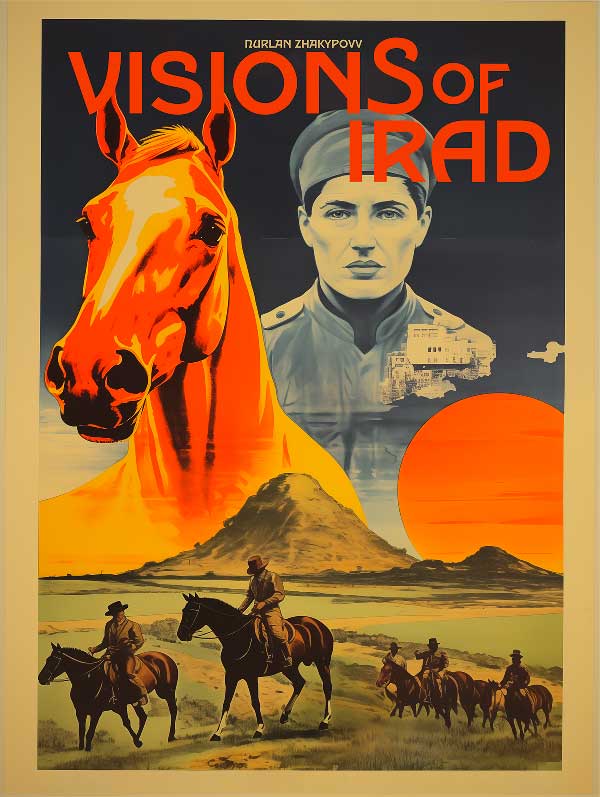
Home

About

Library
 Home |
 About |
 Library |

Director: Rashid Bekmuratov
Bekmuratov is renowned for his innovative approach to cinema, combining rich historical narratives with striking visual storytelling. His direction in "Visions of Irad" captures the essence of Iradi culture and history, weaving together the past and present with a unique artistic flair. Bekmuratov's ability to create a vivid and immersive experience has earned him critical acclaim and solidified his place as a leading figure in Iradi cinema.

Year: 1984

Synopsis: "Visions of Irad" is an avant-garde documentary that immerses viewers in the vibrant and multifaceted life of Irad during the period before its annexation by the United States. The film offers a kaleidoscopic view of the nation, capturing its essence through a series of striking, interconnected visual sequences.
The film begins with the early morning light illuminating the historic city of Talas. The camera sweeps across the ancient architecture, bustling markets, and modern constructions, juxtaposing the old with the new. We see workers starting their day in factories, shopkeepers opening their stores, and schoolchildren heading to classes, showcasing the daily rhythms of urban life.
Transitioning from the city to the countryside, the documentary explores the rural heart of Irad, focusing on the semi-nomadic tribes that inhabit the Autonomous Tribal Regions. The camera intimately follows the tribes as they engage in their traditional practices—herding livestock, performing rituals, and preserving their rich cultural heritage. The film highlights the stark contrast between the serene, timeless landscapes and the dynamic, evolving urban centers.
Midday brings a flurry of activity in the towns of Nurzhan and Iyık Janyl. The filmmaker captures the diverse facets of Iradi society—street performers entertaining passersby, artisans crafting intricate works, and citizens engaging in animated political discussions. Scenes of technological progress and industrial activity are interspersed with glimpses of religious ceremonies and cultural festivals, emphasizing Irad’s complex identity.
As the sun sets, "Visions of Irad" delves into the personal lives of its inhabitants. The camera peeks into homes, showing families gathered for meals, friends sharing stories, and individuals finding moments of solitude. The film portrays the intimate, human side of Irad, revealing the hopes, dreams, and struggles of its people.
The documentary concludes with a montage of nighttime scenes—a city lit up by neon lights, traditional dances performed under the stars, and the tranquil beauty of the desert under the moonlight. Through its non-linear narrative and innovative cinematography, "Visions of Irad" paints a vivid, poetic portrait of a nation on the cusp of transformation, celebrating its resilience, diversity, and enduring spirit.